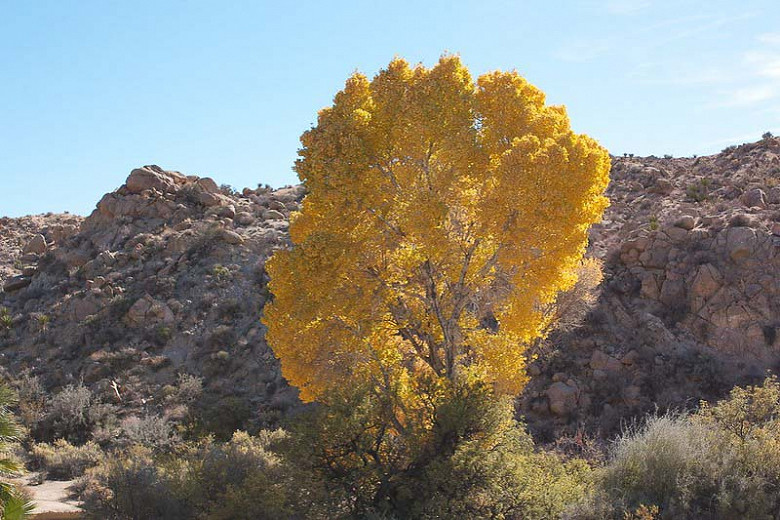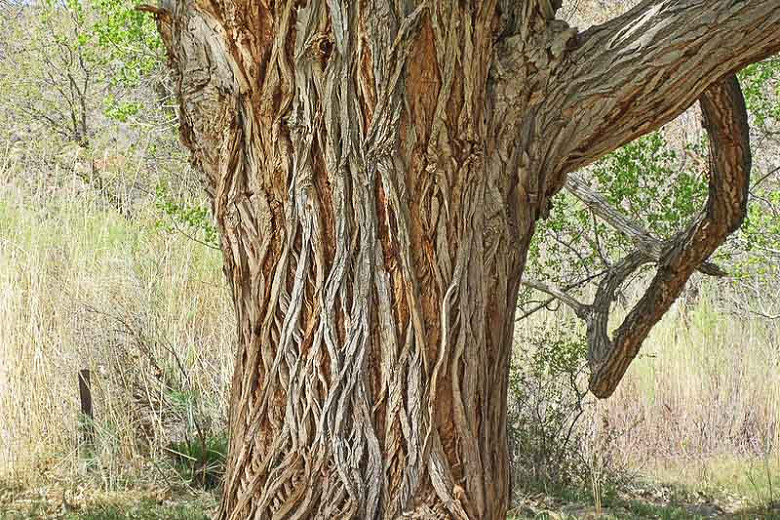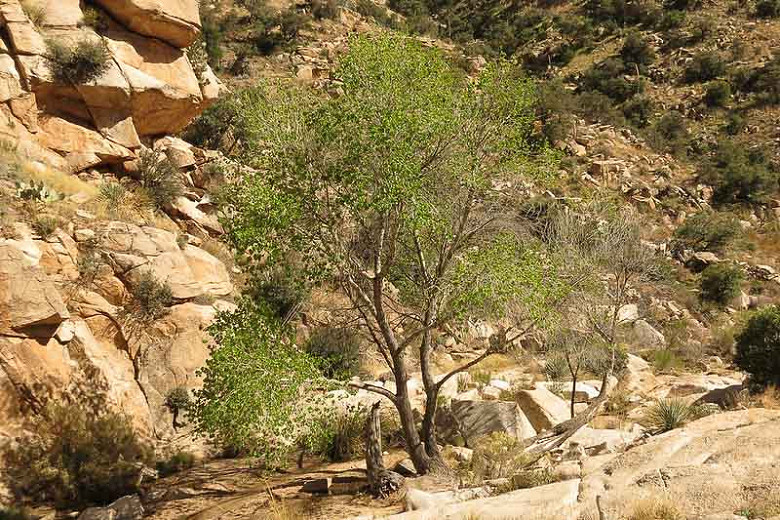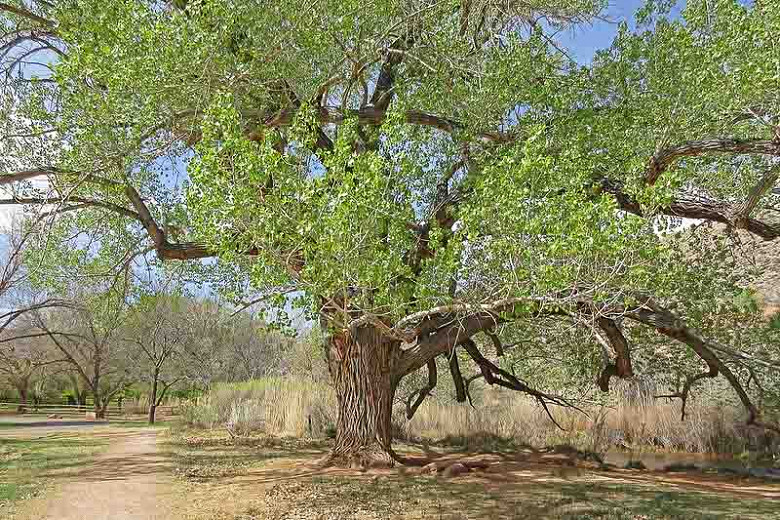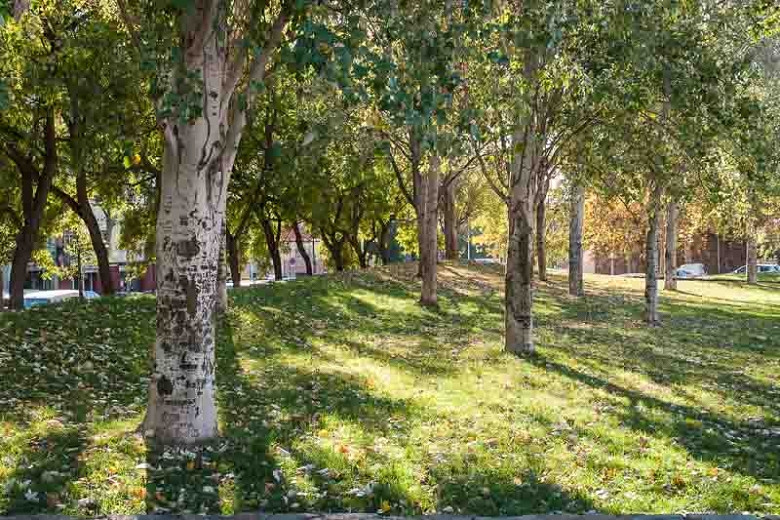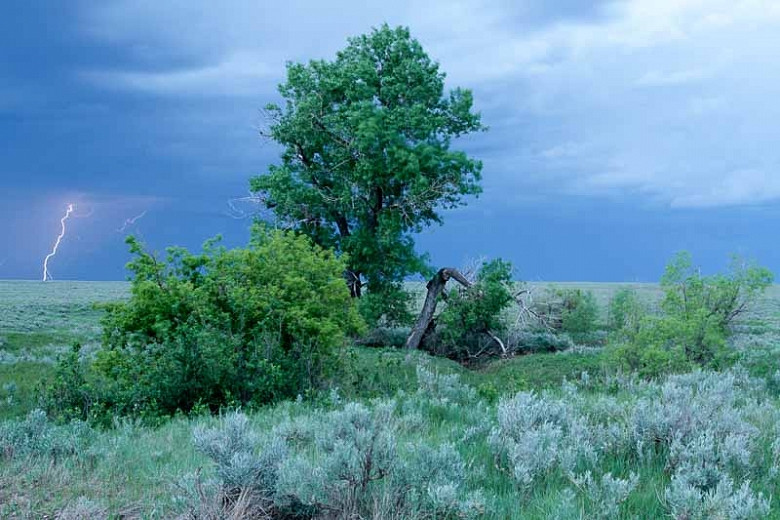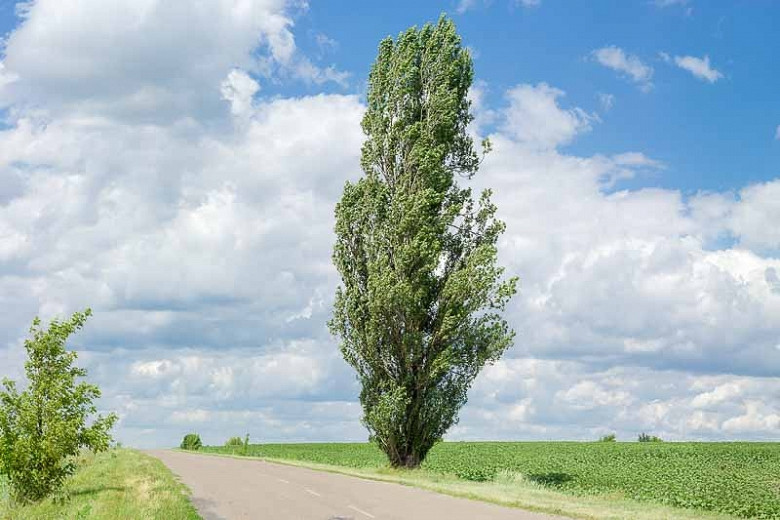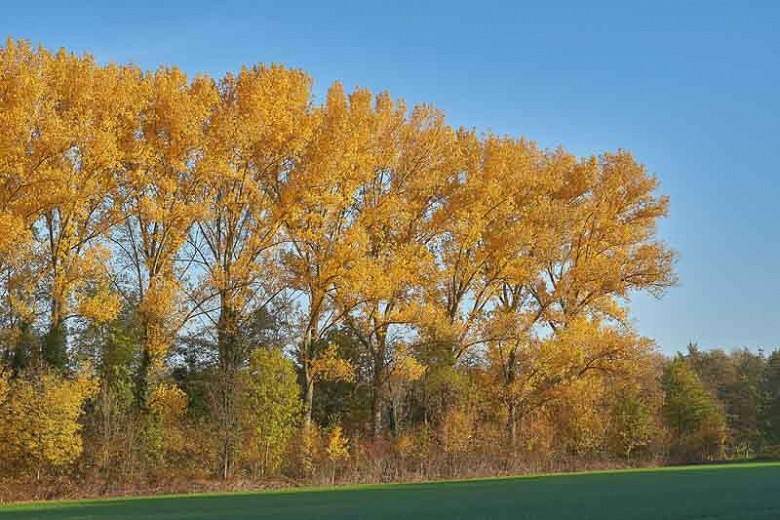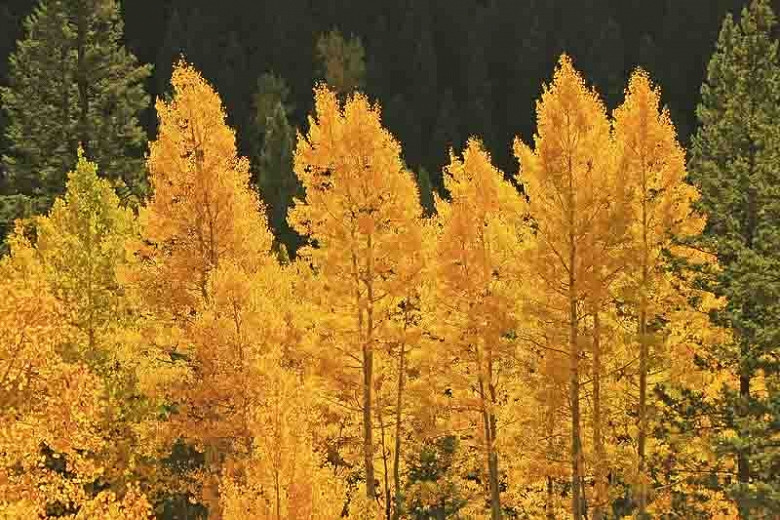Populus fremontii (Western Cottonwood)
Fast-growing, Populus fremontii (Western Cottonwood) is an upright-spreading deciduous tree with stout branches clad with heart-shaped, bright green leaves turning a lovely yellow in fall. On mature trees, the ash-gray bark is divided into thick, flattened ridges, separated by deep fissures. In early-mid spring, clusters of long drooping catkins appear on separate male and female trees. The female flowers give way to capsules that split open to release clouds of cottony seeds that can be a temporary nuisance. Roots can be invasive as Western Cottonwood develops an extensive root system that can buckle sidewalks and damage sewer lines. Important for birds and butterflies, A good shade tree or specimen to be grown on large properties away from residential areas or in rural areas along streams or ponds where other large trees may not flourish.
- Grows up to 40-80 ft. tall (12-24 m) and 30-50 ft. wide (9-15 m). Adds 36 in. per year (90 cm).
- A full sun lover, this plant is easily grown in loamy or sandy, medium to wet, well-drained soils.
- Low maintenance, this beautiful tree may be subject to aphids, beetle borers, beetle leaves, caterpillars, anthracnose, canker, crown rot, mistletoe and sooty mold.
- Propagate by fresh seeds, cuttings or layering.
- Native to Southwestern United States.
Requirements
| Hardiness | 3 – 9 |
|---|---|
| Climate Zones | 1, 1A, 1B, 2, 2A, 2B, 3, 3A, 3B, 4, 5, 6, 7, 8, 9, 10, 11, 12, 14, 15, 16, 17, 18, 19, 20, 21 |
| Plant Type | Trees |
| Plant Family | Populus – Poplars |
| Exposure | Full Sun |
| Season of Interest | Spring (Mid,Late)Summer (Early,Mid,Late)Fall |
| Height | 40' – 80' (12m – 24m) |
| Spread | 30' – 50' (9m – 15m) |
| Water Needs | Low, Average |
| Maintenance | Low |
| Soil Type | Loam, Sand |
| Soil pH | Acid, Alkaline, Neutral |
| Soil Drainage | Moist but Well-Drained, Well-Drained |
| Characteristics | Showy |
| Native Plants | United States, California, Rocky Mountains, Colorado, Utah, Southwest, Nevada, Arizona, New Mexico, Texas |
| Attracts | Birds, Butterflies |
| Garden Uses | Rain Gardens |
| Garden Styles | Informal and Cottage |
